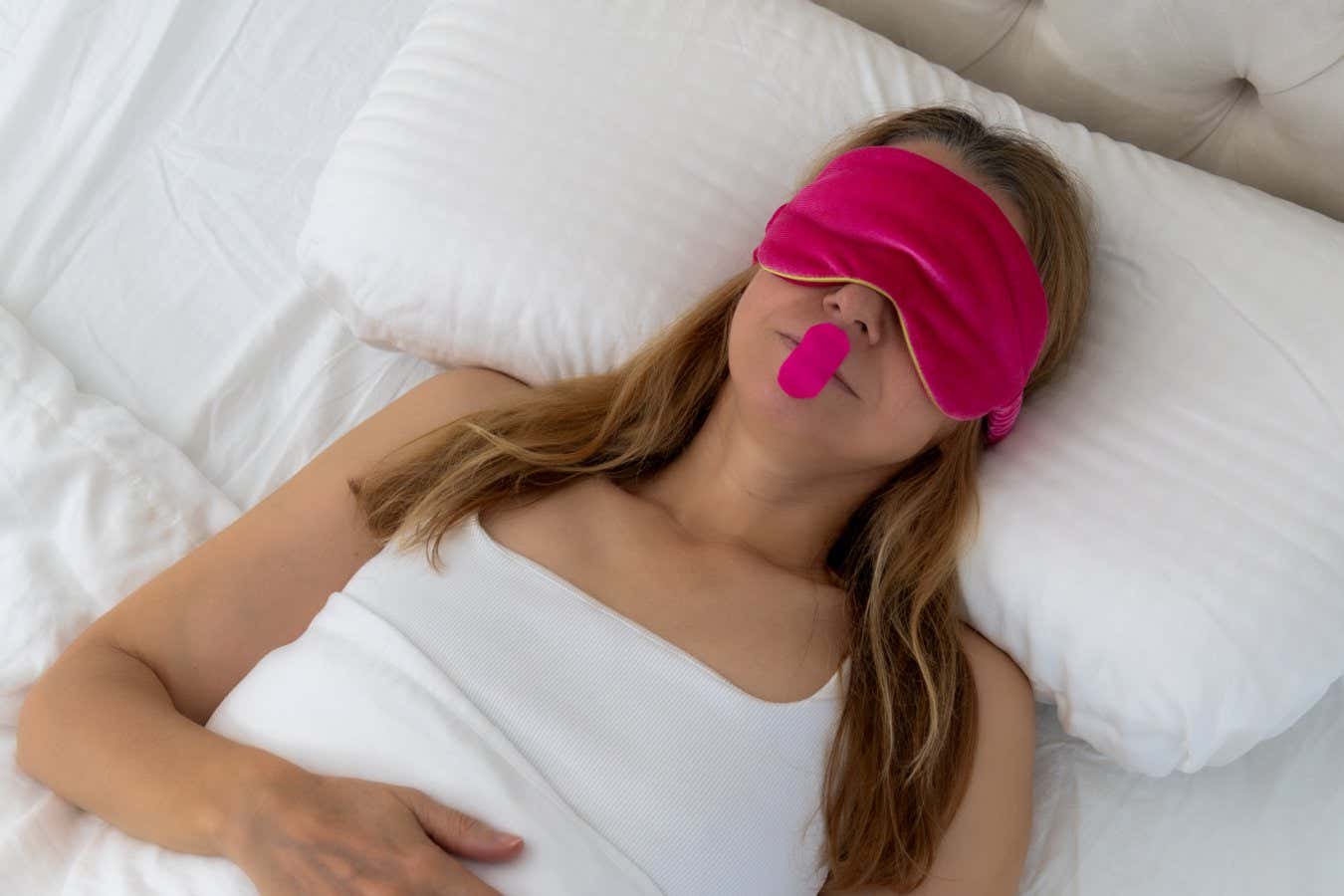Social media is awash with videos claiming that taping your mouth closed will improve your sleep – but the evidence doesn’t stack up
By Carissa Wong
21 May 2025
Some social media videos recommend taping your mouth shut entirely to improve sleep, while others advise only partly closing it
Sevda Ercan/Getty Images
There is little good-quality evidence to support the social media trend of taping your mouth closed at night to alleviate breathing difficulties – and some scientists worry it could bring its own set of problems.
“The fad has taken off on social media,” says Ken O’Halloran at University College Cork in Ireland, who wasn’t involved in the new research. “Ultimately, there’s little evidence it works.”
Read more
The truth behind melatonin and why it may not help you sleep
Advertisement
In the past few years, some users of platforms like TikTok and Instagram have recommended using adhesive tape to close your mouth during sleep, in videos that have collectively been watched millions of times. This forces nasal breathing, which some people claim brings various health benefits, namely reducing breathing problems and thereby deepening sleep.
To explore if there is evidence to support this, Brian Rotenberg at Western University in Ontario, Canada, and his colleagues reviewed eight studies involving nearly 200 people with obstructive sleep apnea. This is a common condition where breathing temporarily stops or becomes restricted during sleep, often causing people to snore and repeatedly jolt awake due to low oxygen levels.
The studies threw up mixed results. In two of them, researchers tracked people’s breathing while they slept for two nights, with and without tape. These found that the tape reduced how often they temporarily stopped breathing or experienced restricted airflow. “This occurred a few times less an hour,” says Rotenberg.
